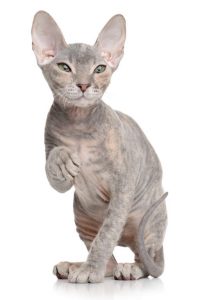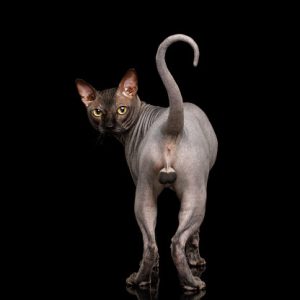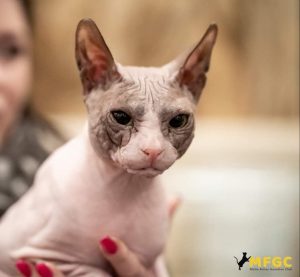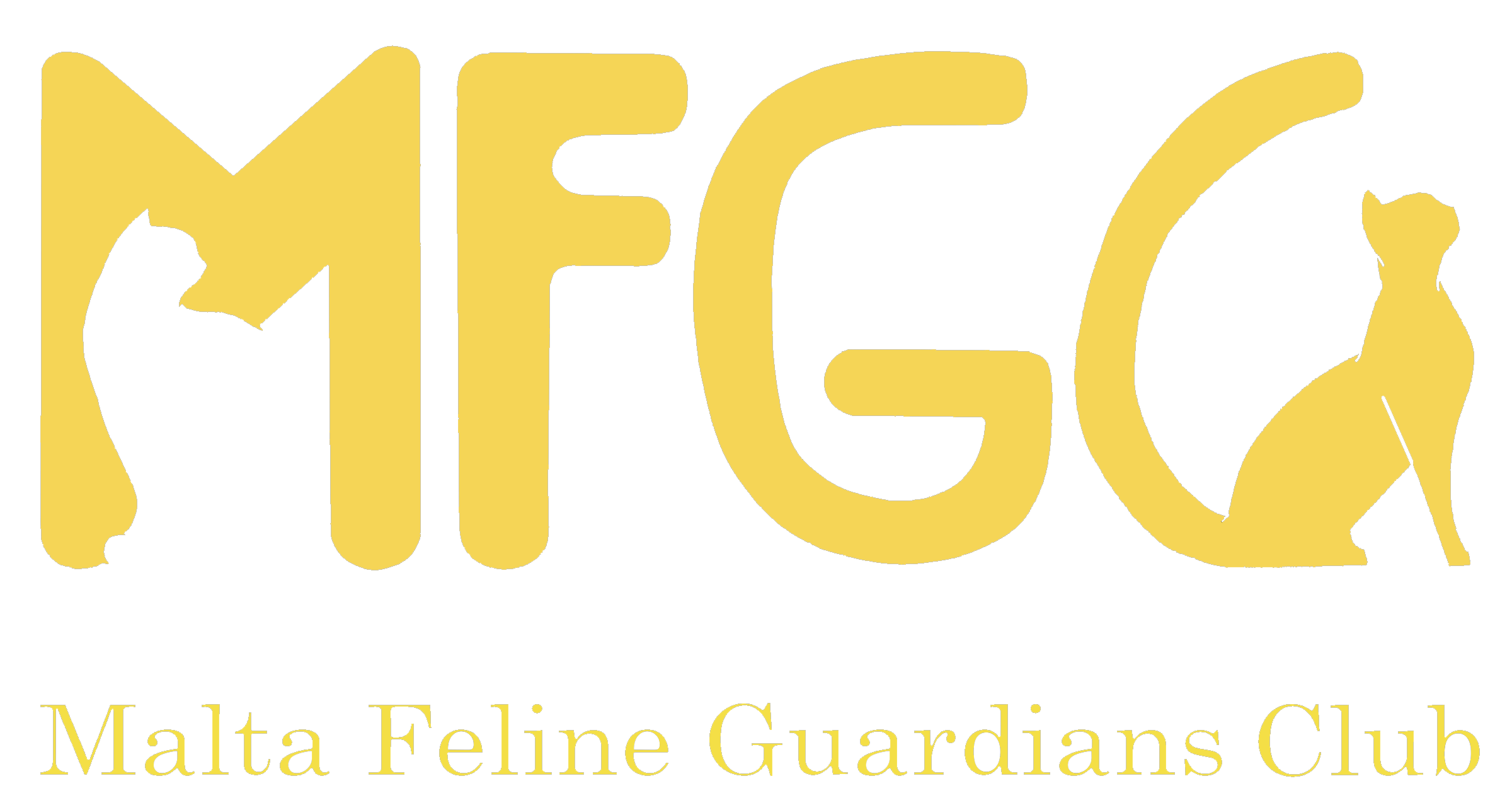 Often referred to as the Don Sphynx, the Russian Donskoy, Don Hairless and Russian Hairless, the Donskoy cat known for having little (or no) hair and wrinkled skin that resembles human skin. Born with 4 coat textures; Rubber Bald, Flocked, Velour, and Brush. The breed standard indicates that these cats are medium-sized and muscular, and have large ears, long, webbed toes, and almond-shaped eyes. Their heads are wedge-shaped and the eyes can come in a variety of colours. The adult Donskoy should weigh about 2.5-5.5 kilos.
Often referred to as the Don Sphynx, the Russian Donskoy, Don Hairless and Russian Hairless, the Donskoy cat known for having little (or no) hair and wrinkled skin that resembles human skin. Born with 4 coat textures; Rubber Bald, Flocked, Velour, and Brush. The breed standard indicates that these cats are medium-sized and muscular, and have large ears, long, webbed toes, and almond-shaped eyes. Their heads are wedge-shaped and the eyes can come in a variety of colours. The adult Donskoy should weigh about 2.5-5.5 kilos.
 These extremely friendly, active cats are known for being very loyal, in fact their loyalty is often compared to that of dogs—and they are also both incredibly intelligent and affectionate. They definitely crave human contact and if other cats are in the same household, you will see they will have a best friend to snuggle up to. They’re the type of cat that seems to assume that everyone who enters the household is there to see them. Because they’re hairless (or nearly hairless), Donskoys have unique grooming needs. They won’t need to be brushed but they will need to be wiped down daily whenever possible, as their body produces oils but doesn’t have enough hair to absorb it. Baths should be given approximately once per month. The combination of bathing and daily wipe-downs will help prevent skin issues, which these cats are prone to, however be sure to avoid over-bathing the Donskoy, as that can cause their skin to become excessively oily. Donskoy care should also include cleaning their ears regularly, once a week to remove debris and wax buildup as well as ward off infection.
These extremely friendly, active cats are known for being very loyal, in fact their loyalty is often compared to that of dogs—and they are also both incredibly intelligent and affectionate. They definitely crave human contact and if other cats are in the same household, you will see they will have a best friend to snuggle up to. They’re the type of cat that seems to assume that everyone who enters the household is there to see them. Because they’re hairless (or nearly hairless), Donskoys have unique grooming needs. They won’t need to be brushed but they will need to be wiped down daily whenever possible, as their body produces oils but doesn’t have enough hair to absorb it. Baths should be given approximately once per month. The combination of bathing and daily wipe-downs will help prevent skin issues, which these cats are prone to, however be sure to avoid over-bathing the Donskoy, as that can cause their skin to become excessively oily. Donskoy care should also include cleaning their ears regularly, once a week to remove debris and wax buildup as well as ward off infection.
 During the colder months, that these cats can grow a winter coat. It will usually appear on their chest and tail and they will shed it when the weather warms up. They will require consistent temperatures indoors all-year round and you’ll often spot Donskoys wearing some sort of sweater during winter. Because of their hairless bodies, sunburn, sensitivity to hot and cold weather, and other skin issues are potential concerns for Donskoy cat owners. These cats have also been associated with certain dental issues such as tooth decay and gum disease, so tooth brushing is a must. Best way to clean teeth is by feeding raw chicken necks. Because Donskoys have a higher body temperature than most cats, this breed actually tends to eat more to maintain their body temperature during the winter. High quality dry food or wetfood with an inclusion of raw protein with bones should include; meat and fish. Avoid giving milk or diary foods to the Donskoy.
During the colder months, that these cats can grow a winter coat. It will usually appear on their chest and tail and they will shed it when the weather warms up. They will require consistent temperatures indoors all-year round and you’ll often spot Donskoys wearing some sort of sweater during winter. Because of their hairless bodies, sunburn, sensitivity to hot and cold weather, and other skin issues are potential concerns for Donskoy cat owners. These cats have also been associated with certain dental issues such as tooth decay and gum disease, so tooth brushing is a must. Best way to clean teeth is by feeding raw chicken necks. Because Donskoys have a higher body temperature than most cats, this breed actually tends to eat more to maintain their body temperature during the winter. High quality dry food or wetfood with an inclusion of raw protein with bones should include; meat and fish. Avoid giving milk or diary foods to the Donskoy.
They are usually seen with a fat belly but their intake should return to normal once winter is over. The average lifespan is 6-12 years

